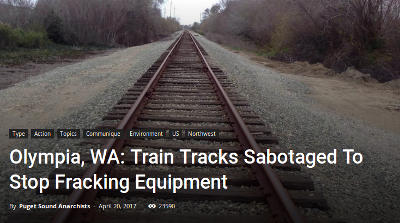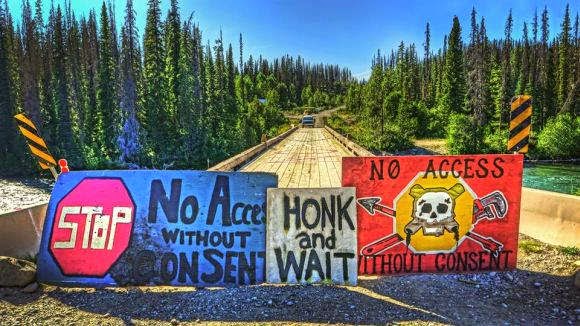Jessica Reznicek and Ruby Montoya are two activists who recently admitted to sabotaging the Dakota Access Pipeline in spring 2017, delaying construction for weeks if not months. Read more about the story here, or listen to DGR members Jennifer Murnan and Max Wilbert interview the two women here.
This video documents a public event held in Des Moines, Iowa in late August, at which Jessica and Ruby spoke in detail about their actions, motivations, and the case for sabotage:
We also recommend reading this recent op-ed in the Des Moines Register, titled “Does property destruction advance progressive social change?”
Excerpt:
group of social change activists to attend a private gathering at the
Des Moines Catholic Worker Berrigan House with two young women — Jessica
Reznicek, 36, and Ruby Montoya, 27.
purpose was to discuss how progressive folks think about the actions
they both admitted to along the Dakota Access Pipeline (DAPL). I had
previously met Jessica when she and a friend were camped out in front of
the Iowa Utilities Board last winter on a prolonged fast to protest the
IUB’s approval of the pipeline through Iowa. I had brought her hand
warmers and we spoke briefly. In deciding to accept the invitation, I
had concerns and wanted to hear what these two women and others had to
say about tactics that go beyond more common civil
disobedience associated with successful movements for voting, civil
rights and for peace in Vietnam.
many of you know, Ruby Montoya and I have engaged for the past year in
various forms of what we believe to be peaceful resistance against the
Dakota Access pipeline. In July, Ruby and I claimed responsibility for
having undergone an 8-month-long property destruction campaign against
DAPL infrastructure in an effort to halt construction.
has not gone unnoticed that our friends in the peace and justice
communities of Iowa have been somewhat slow to publicly support our
activities. In fact, most of our allies have remained completely silent,
although many have reached out and support us personally.'”
 Our
Our 
